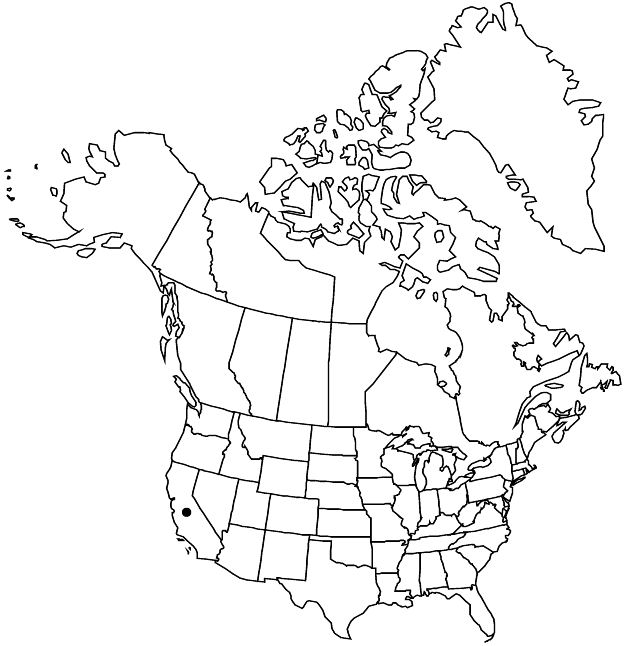Difference between revisions of "Horkelia cuneata var. sericea"
Novon 17: 319. 2007.
FNA>Volume Importer |
FNA>Volume Importer |
||
| Line 15: | Line 15: | ||
|label=Endemic | |label=Endemic | ||
}} | }} | ||
| − | |basionyms={{Treatment/ID/ | + | |basionyms={{Treatment/ID/Basionym |
|name=Horkelia californica var. sericea | |name=Horkelia californica var. sericea | ||
|authority=A. Gray | |authority=A. Gray | ||
| + | |publication_title=Proc. Amer. Acad. Arts | ||
| + | |publication_place=6: 529. 1865 | ||
}} | }} | ||
|synonyms={{Treatment/ID/Synonym | |synonyms={{Treatment/ID/Synonym | ||
| Line 50: | Line 52: | ||
|distribution=Calif. | |distribution=Calif. | ||
|discussion=<p>Of conservation concern.</p><!-- | |discussion=<p>Of conservation concern.</p><!-- | ||
| − | --><p>Historic populations of <i></i>var.<i> sericea</i> occurred along the immediate coast from Alameda and Marin counties south at least to Santa Barbara County, with some littoral collections of <i>Horkelia cuneata</i> from Los Angeles and San Diego counties having some sericea characteristics. Reports from farther north are all based on misidentifications, for example, of <i>H. californica</i> in Sonoma County. The most distinctive specimens are from the northern populations in Alameda, Marin, San Francisco, and San Mateo counties, all of which apparently no longer exist. Of the recently confirmed extant populations, those that come closest to justifying continued recognition of <i></i>var.<i> sericea</i> are in Monterey, San Luis Obispo, and Santa Cruz counties.</p> | + | --><p>Historic populations of <i></i></i>var.<i><i> sericea</i> occurred along the immediate coast from Alameda and Marin counties south at least to Santa Barbara County, with some littoral collections of <i>Horkelia cuneata</i> from Los Angeles and San Diego counties having some sericea characteristics. Reports from farther north are all based on misidentifications, for example, of <i>H. californica</i> in Sonoma County. The most distinctive specimens are from the northern populations in Alameda, Marin, San Francisco, and San Mateo counties, all of which apparently no longer exist. Of the recently confirmed extant populations, those that come closest to justifying continued recognition of <i></i></i>var.<i><i> sericea</i> are in Monterey, San Luis Obispo, and Santa Cruz counties.</p> |
|tables= | |tables= | ||
|references= | |references= | ||
| Line 74: | Line 76: | ||
|publication year=2007 | |publication year=2007 | ||
|special status=Conservation concern;Endemic | |special status=Conservation concern;Endemic | ||
| − | |source xml=https://jpend@bitbucket.org/aafc-mbb/fna-data-curation.git/src/ | + | |source xml=https://jpend@bitbucket.org/aafc-mbb/fna-data-curation.git/src/f6b125a955440c0872999024f038d74684f65921/coarse_grained_fna_xml/V9/V9_400.xml |
|subfamily=Rosaceae subfam. Rosoideae | |subfamily=Rosaceae subfam. Rosoideae | ||
|tribe=Rosaceae tribe Potentilleae | |tribe=Rosaceae tribe Potentilleae | ||
Revision as of 21:36, 24 September 2019
Plants grayish-sericeous; eglandular hairs dense, ascending to appressed, glandular hairs obscured. Stems decumbent to ascending, 2–5(–7.5) dm. Leaflets 5–10 per side, obovate, (5–)10–25(–30) mm, not distinctly pinnately veined. Inflorescences usually ± congested; most flowers arranged in glomerules. Pedicels 1–3 mm, proximalmost to 12 mm. Flowers: hypanthium interior rim densely pilose; petals oblanceolate, 1.5–3 mm wide; filaments 1–3 × 0.5–1 mm. 2n = 28.
Phenology: Flowering summer.
Habitat: Coastal stabilized dunes and hills, coastal scrub communities
Elevation: 0–200 m
Discussion
Of conservation concern.
Historic populations of var. sericea occurred along the immediate coast from Alameda and Marin counties south at least to Santa Barbara County, with some littoral collections of Horkelia cuneata from Los Angeles and San Diego counties having some sericea characteristics. Reports from farther north are all based on misidentifications, for example, of H. californica in Sonoma County. The most distinctive specimens are from the northern populations in Alameda, Marin, San Francisco, and San Mateo counties, all of which apparently no longer exist. Of the recently confirmed extant populations, those that come closest to justifying continued recognition of var. sericea are in Monterey, San Luis Obispo, and Santa Cruz counties.
Selected References
None.
